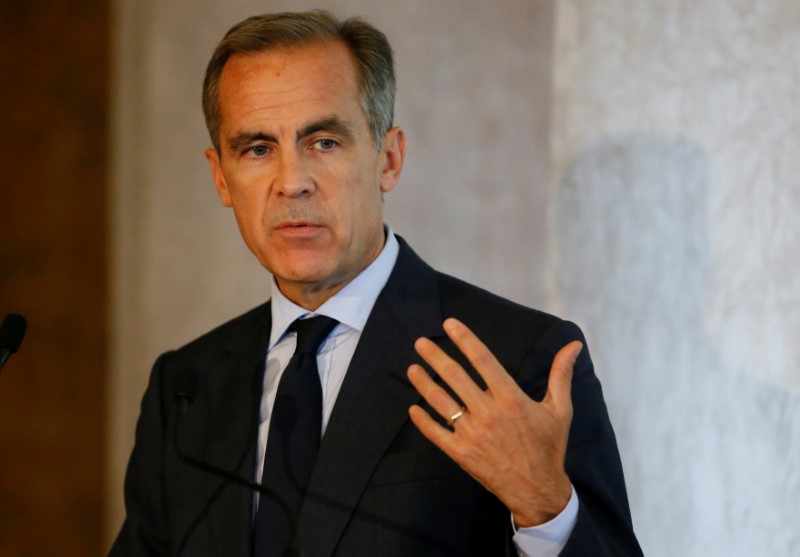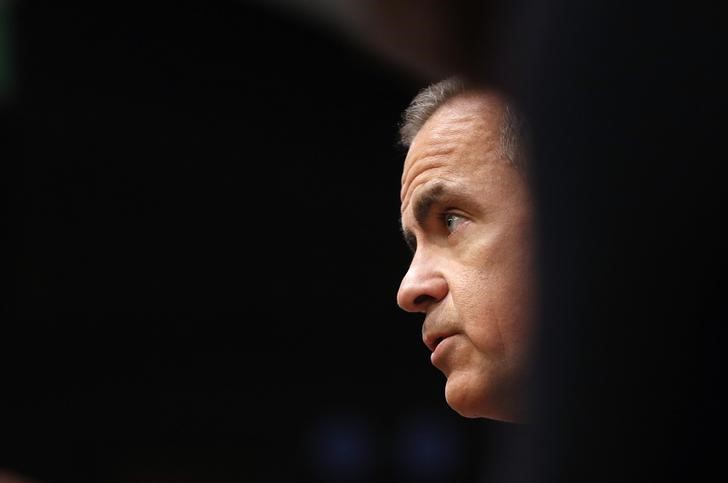LONDON (Reuters) - Britain's economy will grow more slowly in the short term if the country fails to secure a future trading deal with the European Union after Brexit, Bank of England Governor Mark Carney said on Sunday.
Asked in an interview with ITV (LON:ITV) television if Britain's economy would take a hit if there is no Brexit deal. Carney said:
"In the short term, without question, if we have materially less access (to the EU's single market) than we have now, this economy is going to need to reorient and during that period of time it will weigh on growth."
Carney also said British business investment should be booming now, given the strength of the world economy and other factors, but that it was just growing instead.
This is because of the uncertainty about the outcome of the Brexit negotiations, he said.
The BoE on Thursday raised interest rates for the first time since 2007, before the start of the global financial crisis, but sterling fell sharply as the central bank also said it expected only "very gradual" rate rises ahead.
Britain's economy has slowed sharply this year following the 2016 Brexit vote, but the BoE decided to raise rates in part because it believes that Brexit will create more inflation pressure due to lower migration and weaker investment.
Carney told ITV on Sunday that it was possible that in the event of a bad Brexit deal, the BoE would not be able to cut interest rates in future because of that inflationary pressure.
"The scenario you paint is not the most likely, by any stretch of the imagination, but it is a possibility," he said.

Carney has come under political pressure from some supporters of the vote to leave the EU, who have been angered by his comments that Brexit is having a negative impact on the economy.
